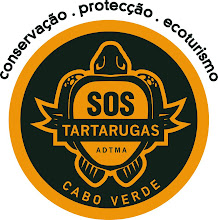Tuesday, July 29, 2008
East coast vs west coast
Just because we got used to all the activity happening around what we call Black Sand Beach (far end of Algodoeiro) the turtles switched over to the east side. The last few nights have seen much more activity on Costa Fragata which gave us the opportunity to think about moving a couple of nests further up the beach rather than to the hatchery. We had to move them because of their proximity to places where people regularly drive quads. CF is better for leaving the nests in situ than the west coast because of the width of the beach and the small lumps and bumps that make it easier to tuck the eggs away safely. The relative lack of light is also a big help. We had a competition to see who could make the best, most authentic, nest - we always try to replicate exactly what the turtle did in terms of width and depth. The nest we moved was the biggest yet - 136 eggs - a monster effort.
Sunday, July 27, 2008
What????
In two separate incidents yesterday, it looks like the Rangers working for SOS Tartarugas are believed to have some suspicious motives :
1. Neal and Hattie, while innocently doing morning patrol counting tracks and looking for nests were harangued by an Italian gentleman who, despite being shown their uniforms and their official government ID, firmly believed that they were there to steal turtle eggs.
2. During an interview on Radio Cabo Verde Manuel and Aricson were told that many people believed that SOS Tartarugas were only keeping people from taking turtles so that they could have them all to themselves.
Folks! Let me assure you - we only put eggs in safer places for incubation and release them later and the turtles get tagged and returned safe and sound to the sea. Our fridge is not full of turtle meat! Perhaps we have not done as good a PR job as we thought!
1. Neal and Hattie, while innocently doing morning patrol counting tracks and looking for nests were harangued by an Italian gentleman who, despite being shown their uniforms and their official government ID, firmly believed that they were there to steal turtle eggs.
2. During an interview on Radio Cabo Verde Manuel and Aricson were told that many people believed that SOS Tartarugas were only keeping people from taking turtles so that they could have them all to themselves.
Folks! Let me assure you - we only put eggs in safer places for incubation and release them later and the turtles get tagged and returned safe and sound to the sea. Our fridge is not full of turtle meat! Perhaps we have not done as good a PR job as we thought!
Friday, July 25, 2008
Up track, no down track

Always a bad sign... unfortunately for this turtle it became the first statistic on the east coast, following the tell-tale drag mark almost a kilometer off the beach, we found the remains of a 80cm female loggerhead. This is the first carapace we have found, compared to last year when we would regularly find three or four left on the beach every morning, turtle-killers are now too scared to do their work on the beaches because there are too many people watching. Another change is that they had made a feeble attempt to erase the turtle's tracks, but it was still immediately obvious what had happened. Usually the flippers are discarded, but in this case they were missing, leading to a suspicion that, unfortunately, she was a turtle that we had previously tagged. Her eggs were laying scattered along her remains, so another generation has also been lost.
Thursday, July 24, 2008
Day 54

After 54 days in the Big Turtle House, we are finally connected to the world via wireless internet. 54 long days since we started our lonely patrols on the beaches of Sal every night and every morning. The first turtle made us wait 12 long days before tantalising us with some tracks until, finally, on the 17th June the first turtle was tagged by Hattie. Since that time we have counted more than 300 turtle 'activities' (tracks, nests etc), tagged 37 turtles, left 23 nests where they are and moved 35. As of last night there were 3124 eggs incubating away in the hatchery.
Subscribe to:
Comments (Atom)





